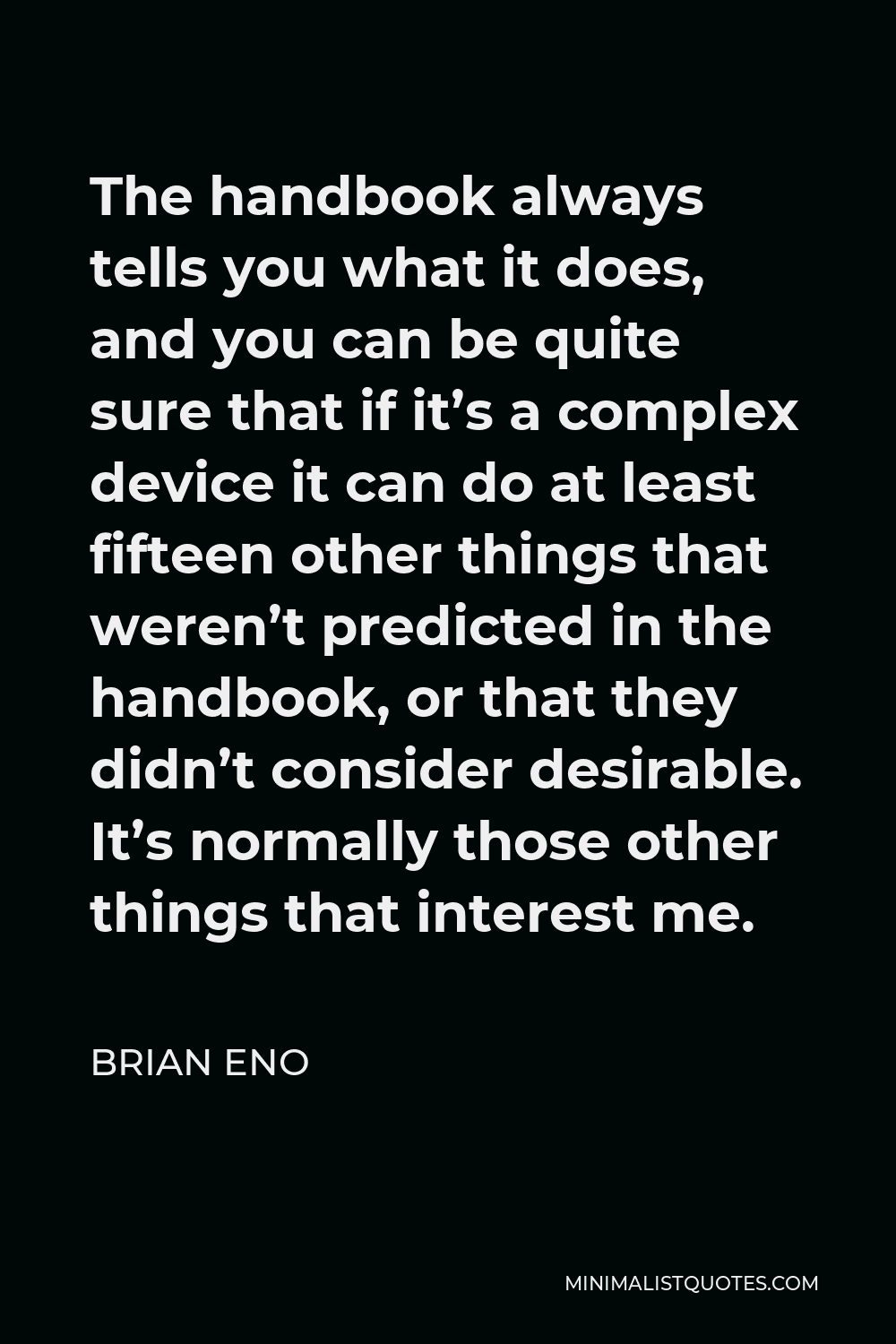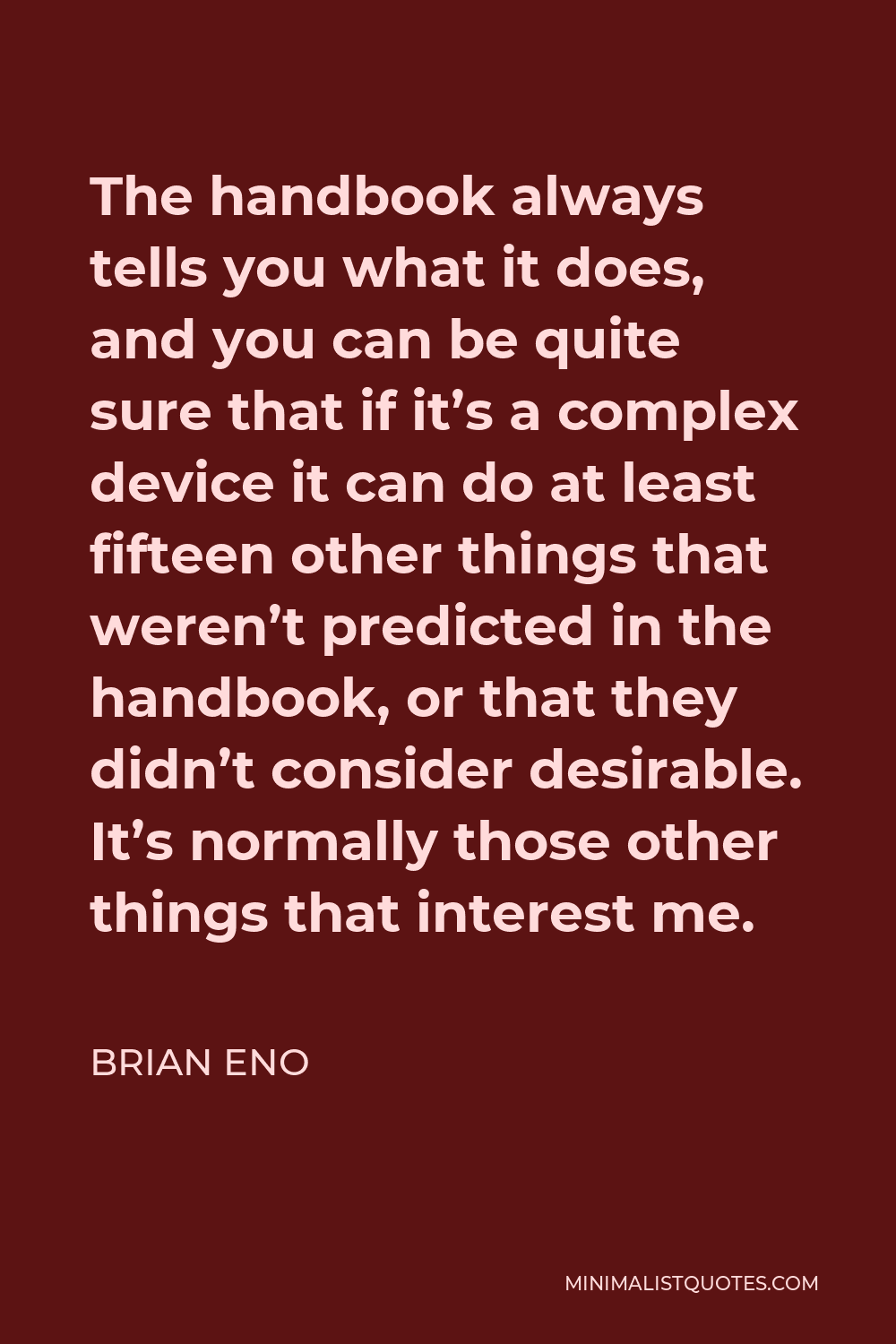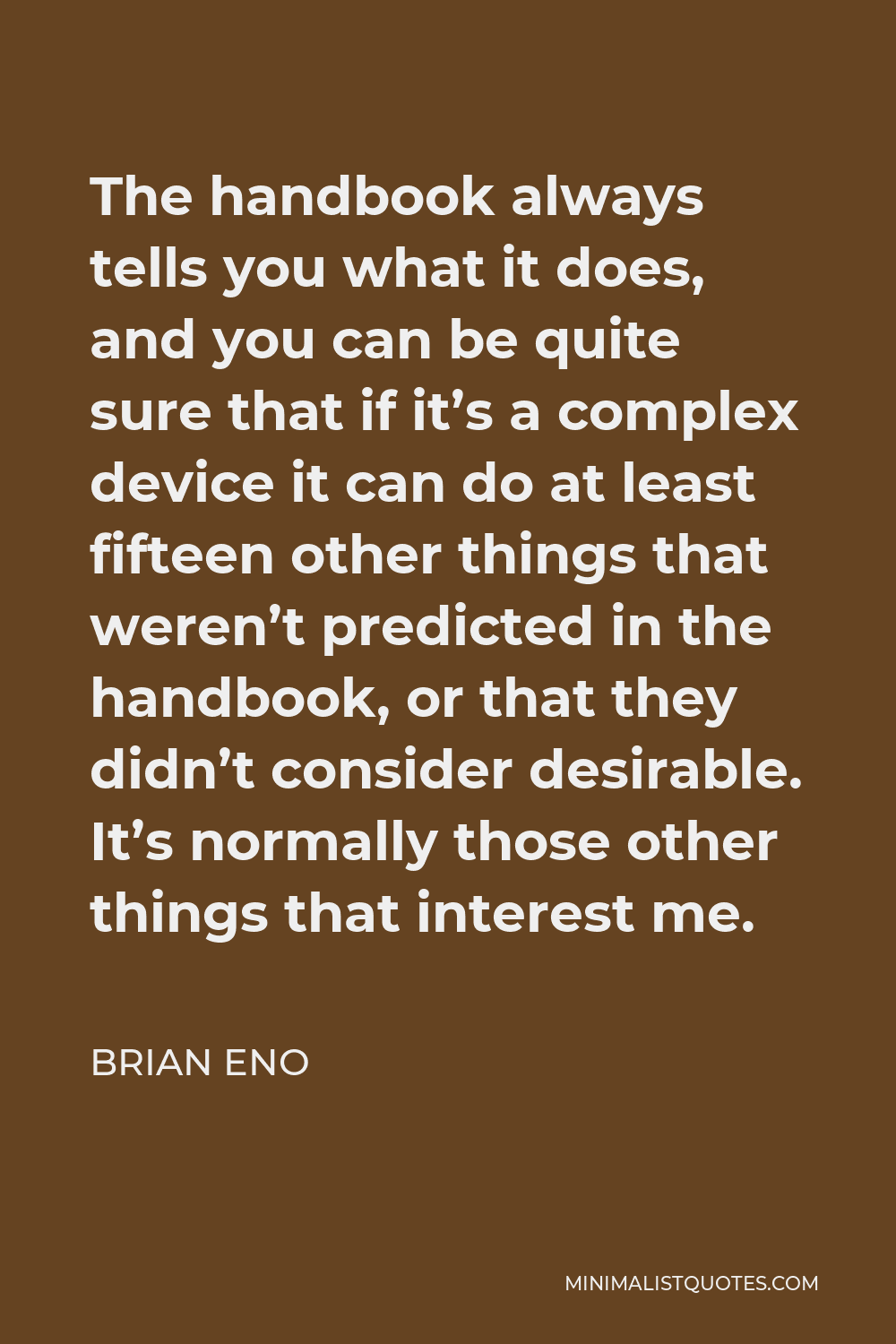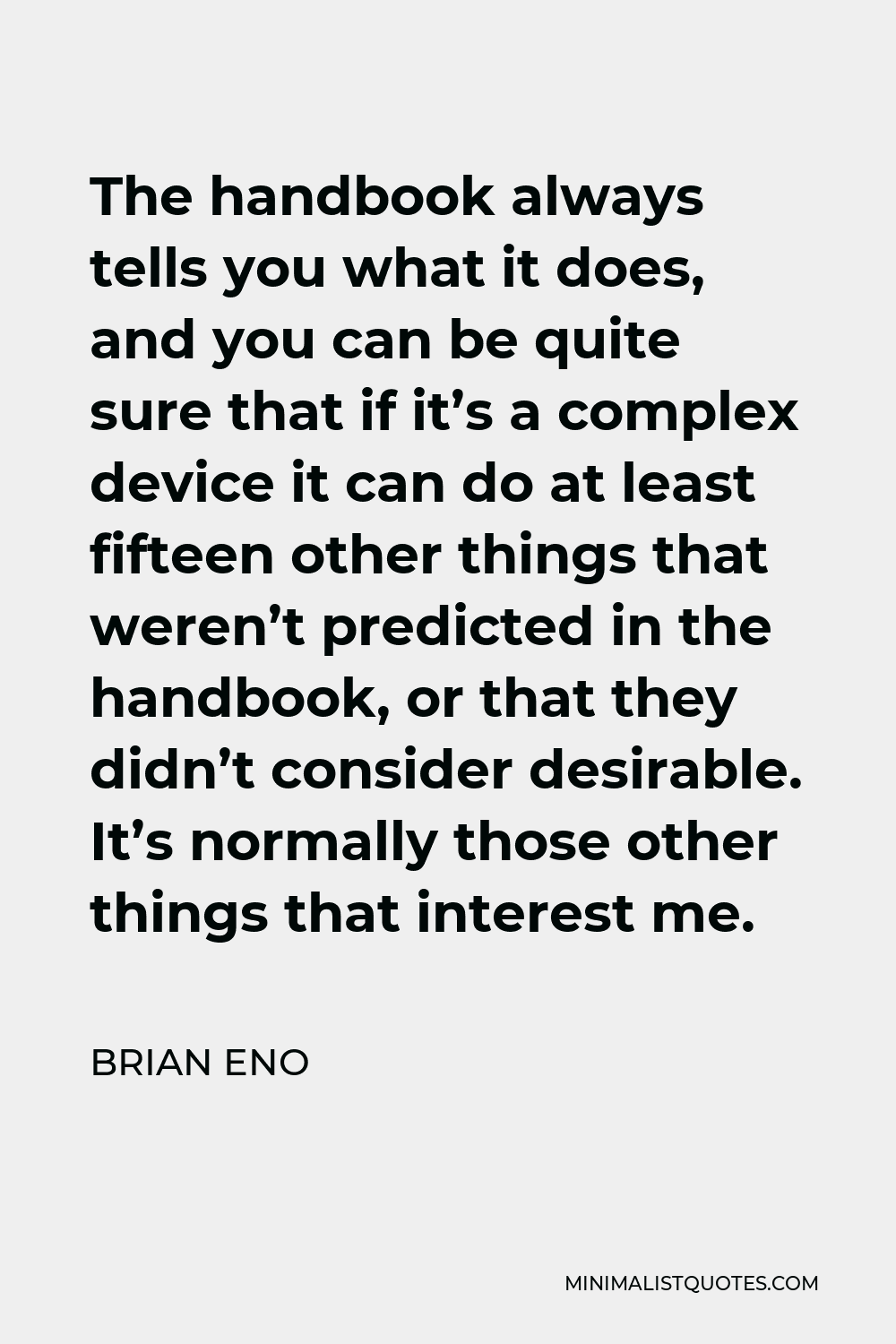So, that means you can only play either very high or very low or both. And we’re going to stay there until I take my finger down.
BRIAN ENOThe handbook always tells you what it does, and you can be quite sure that if it’s a complex device it can do at least fifteen other things that weren’t predicted in the handbook, or that they didn’t consider desirable. It’s normally those other things that interest me.
More Brian Eno Quotes
-






-





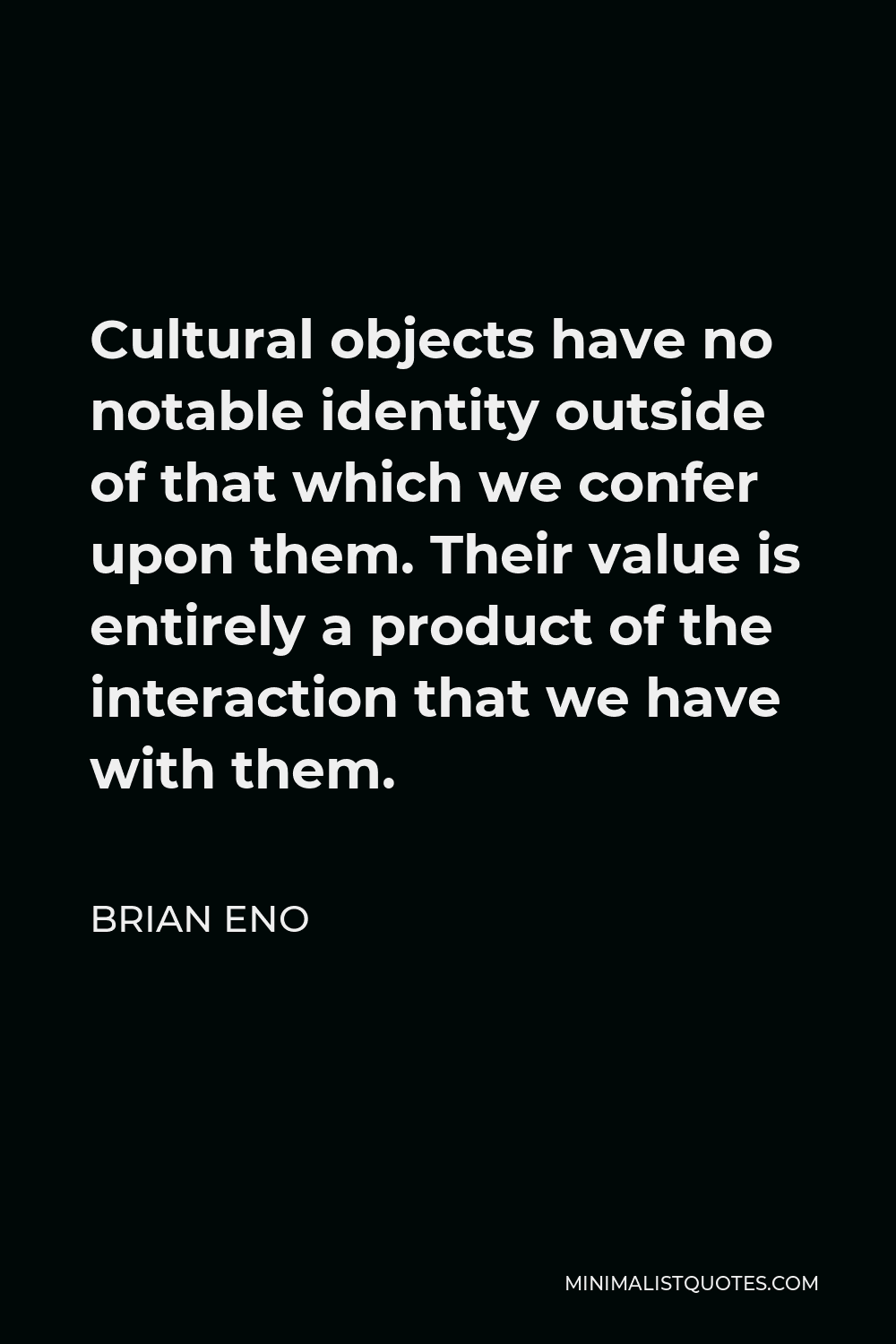
Cultural objects have no notable identity outside of that which we confer upon them. Their value is entirely a product of the interaction that we have with them.
BRIAN ENO -





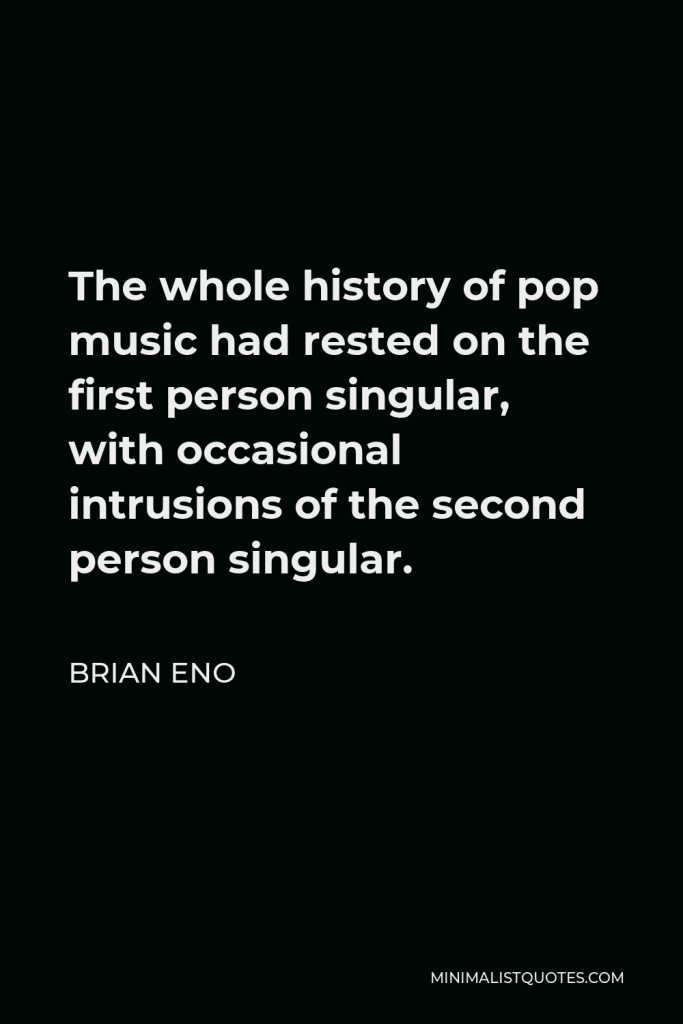

The whole history of pop music had rested on the first person singular, with occasional intrusions of the second person singular.
BRIAN ENO -





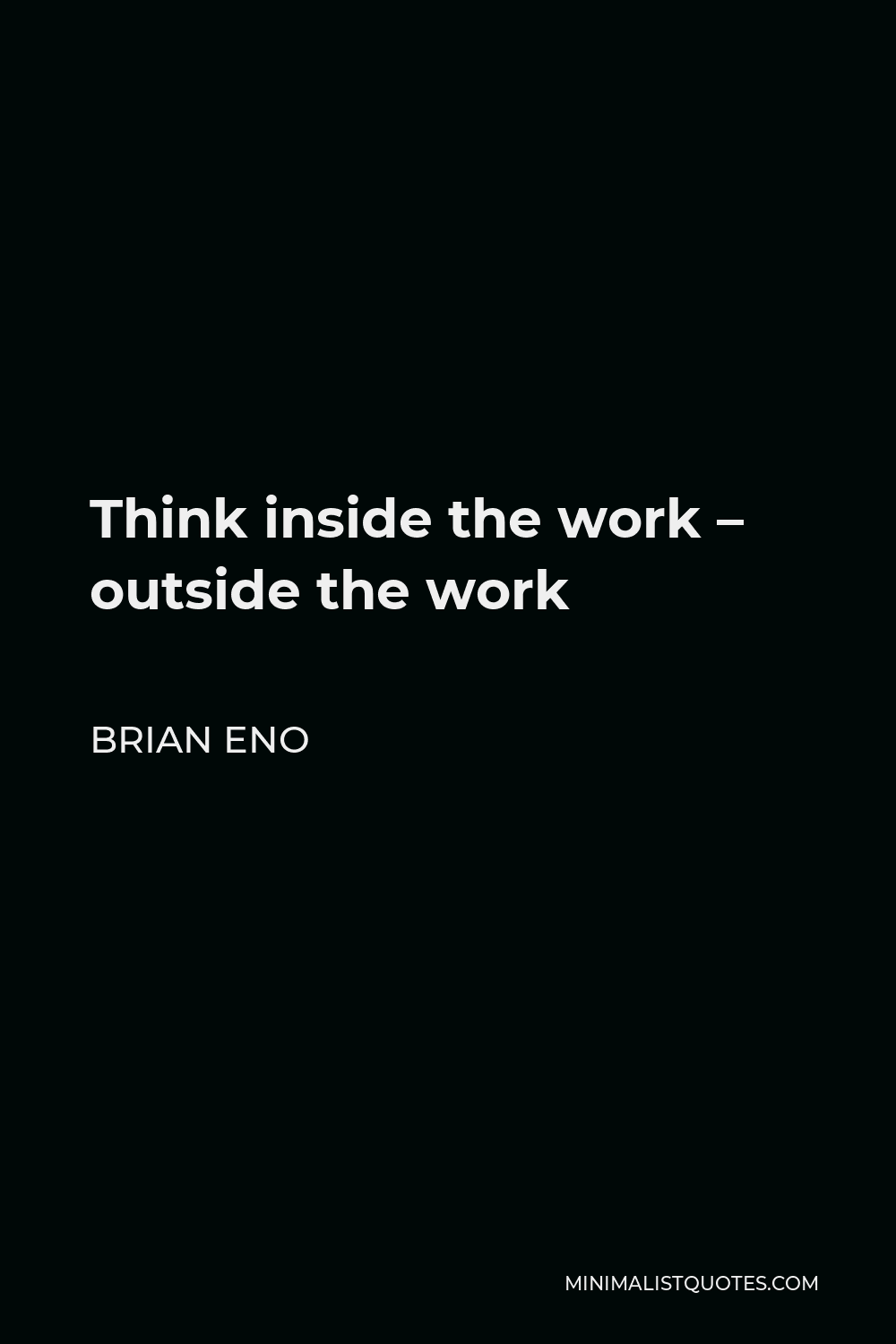
Think inside the work – outside the work
BRIAN ENO -





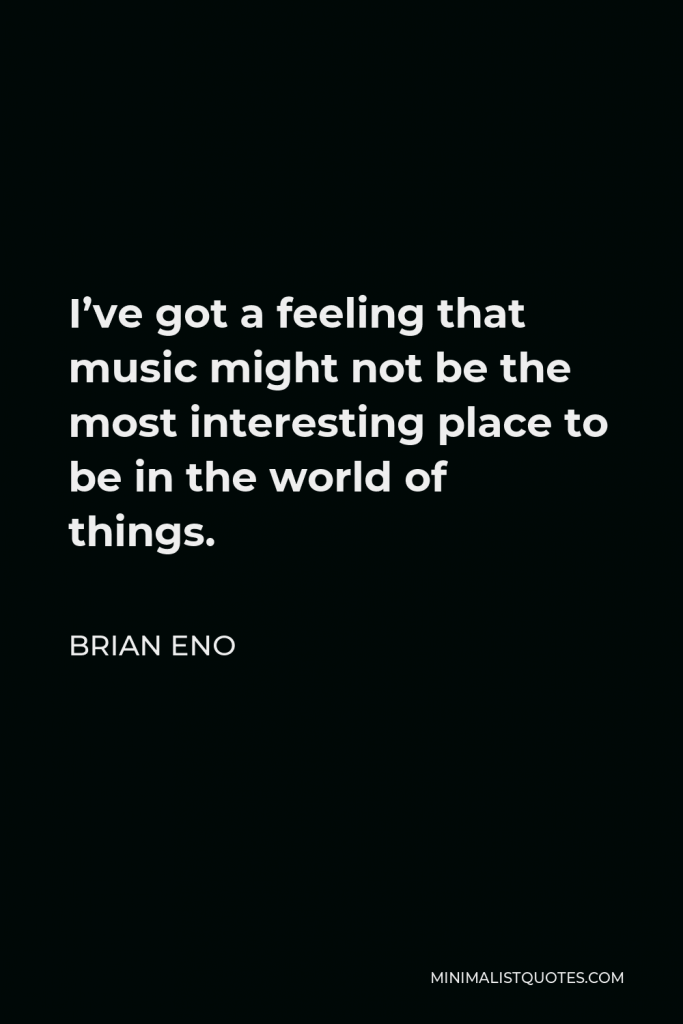

I’ve got a feeling that music might not be the most interesting place to be in the world of things.
BRIAN ENO -





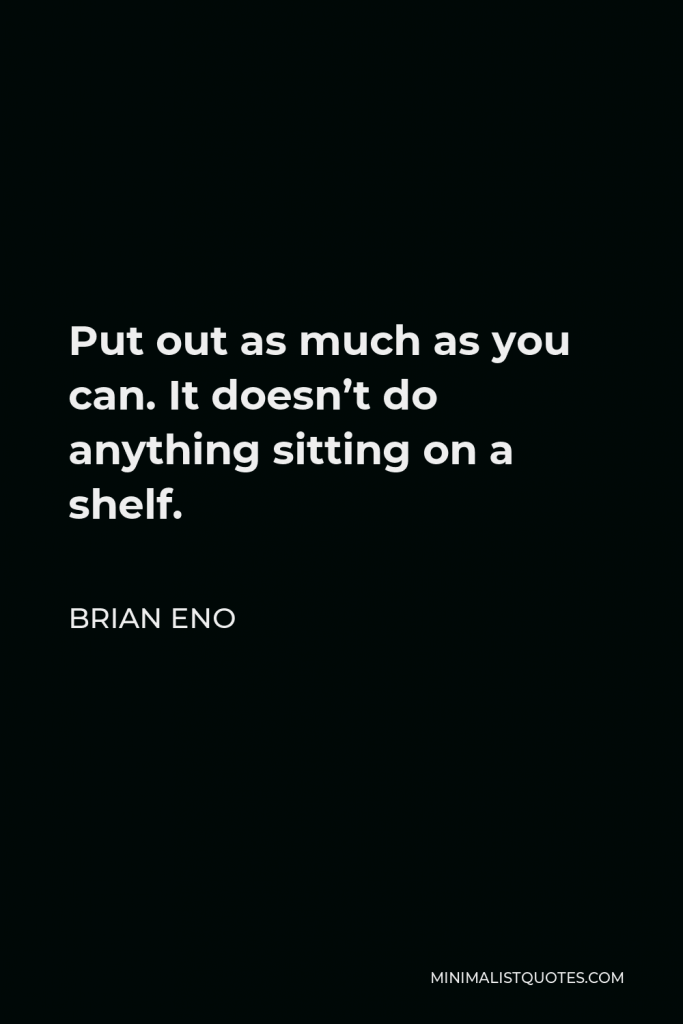

Put out as much as you can. It doesn’t do anything sitting on a shelf.
BRIAN ENO -





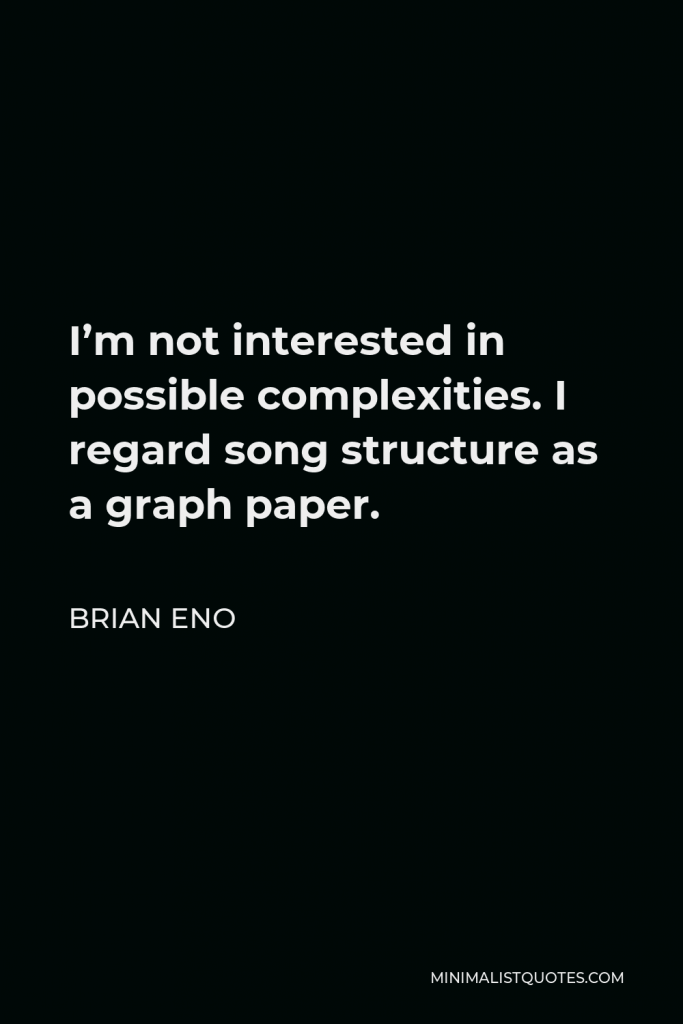

I’m not interested in possible complexities. I regard song structure as a graph paper.
BRIAN ENO -





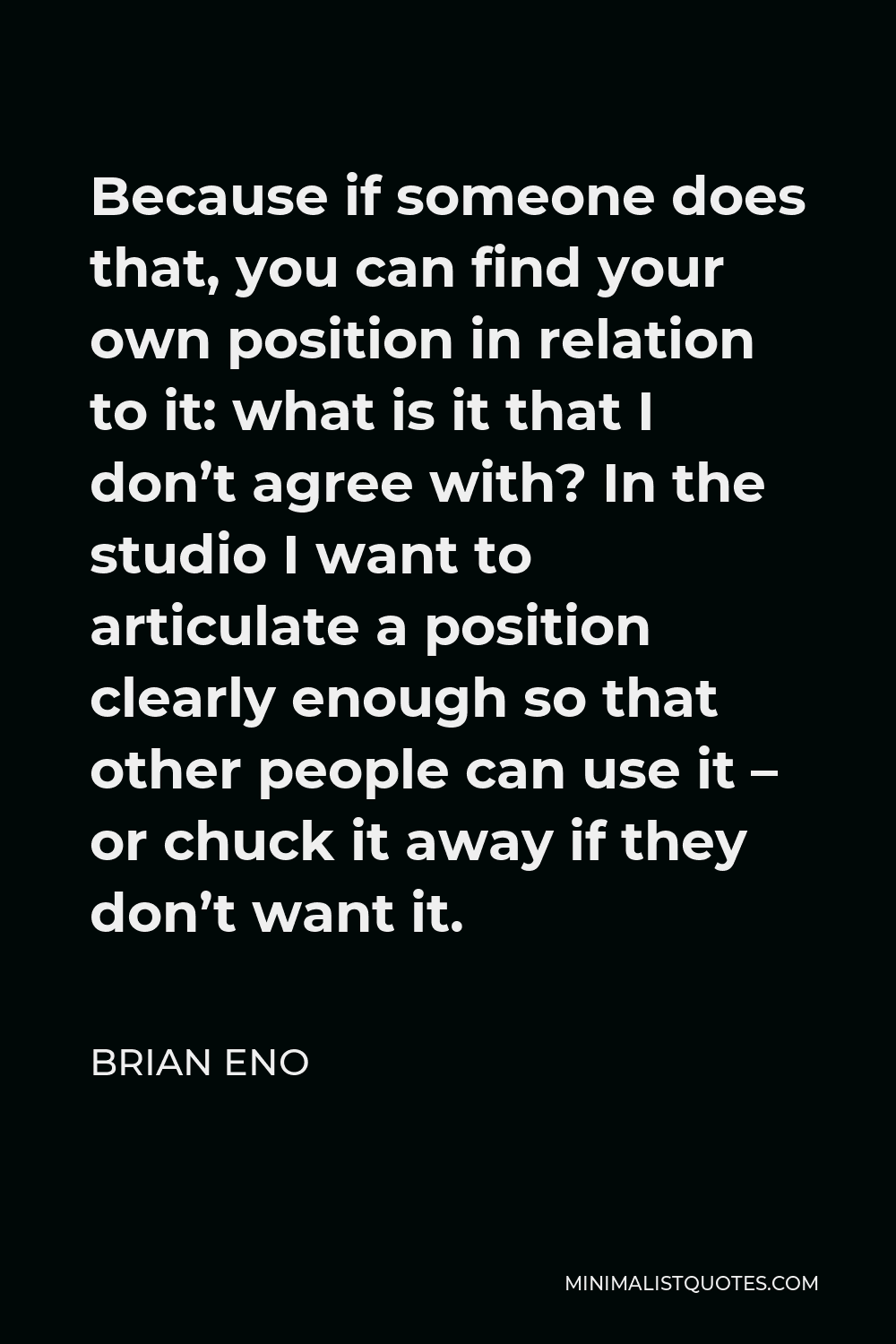
Because if someone does that, you can find your own position in relation to it: what is it that I don’t agree with? In the studio I want to articulate a position clearly enough so that other people can use it – or chuck it away if they don’t want it.
BRIAN ENO -





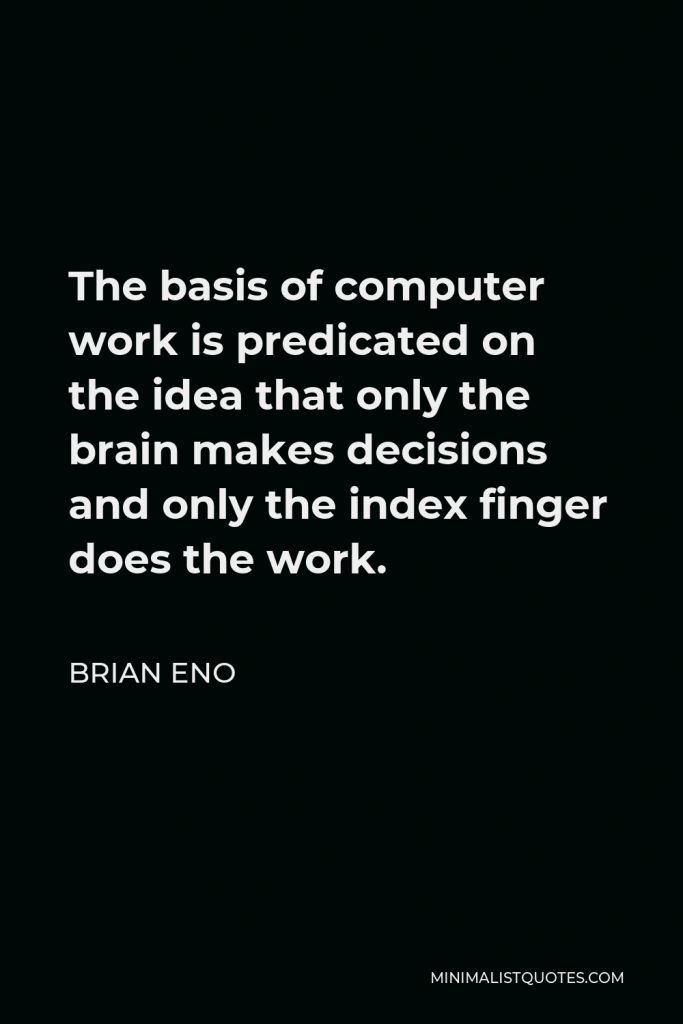

The basis of computer work is predicated on the idea that only the brain makes decisions and only the index finger does the work.
BRIAN ENO -





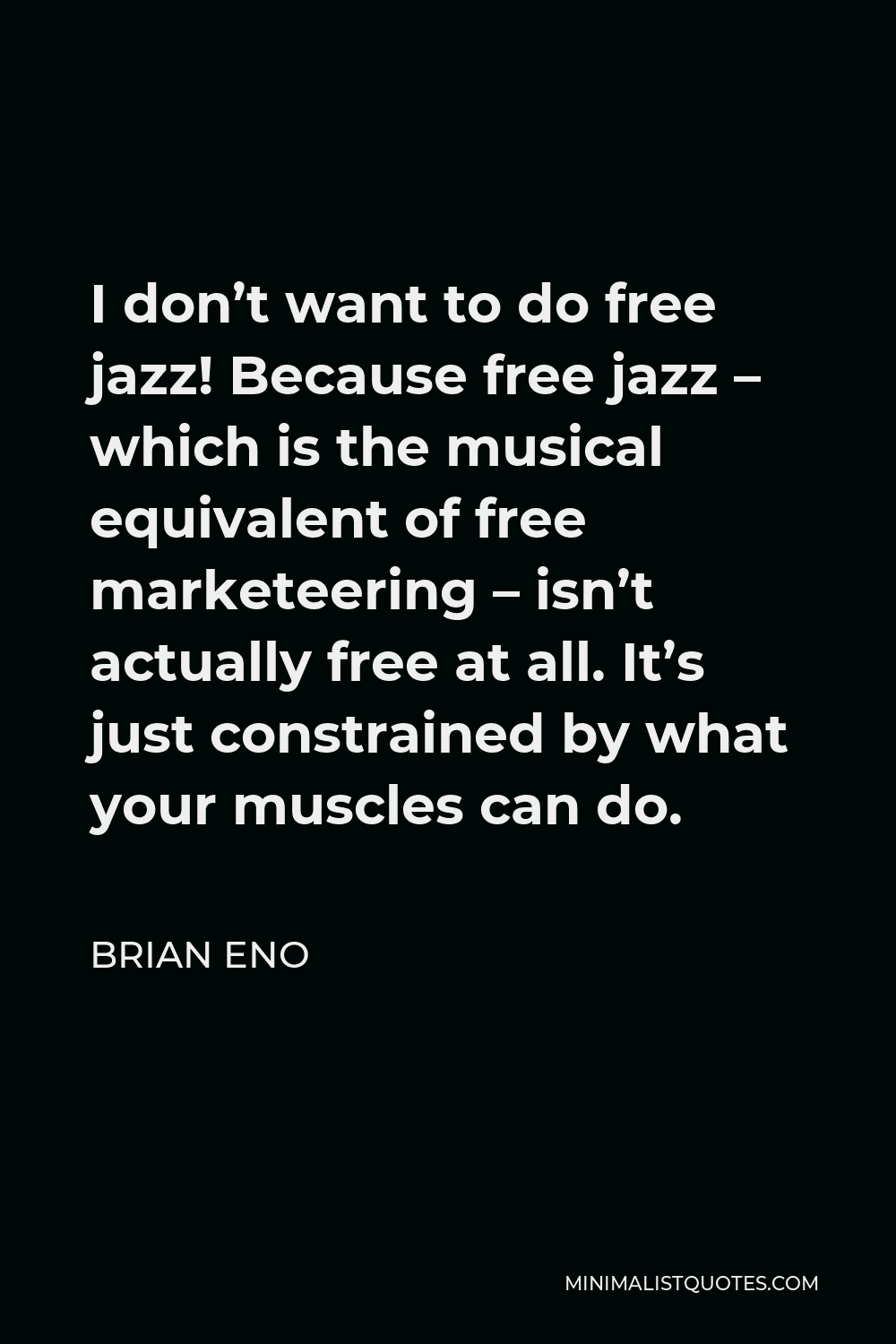
I don’t want to do free jazz! Because free jazz – which is the musical equivalent of free marketeering – isn’t actually free at all. It’s just constrained by what your muscles can do.
BRIAN ENO -





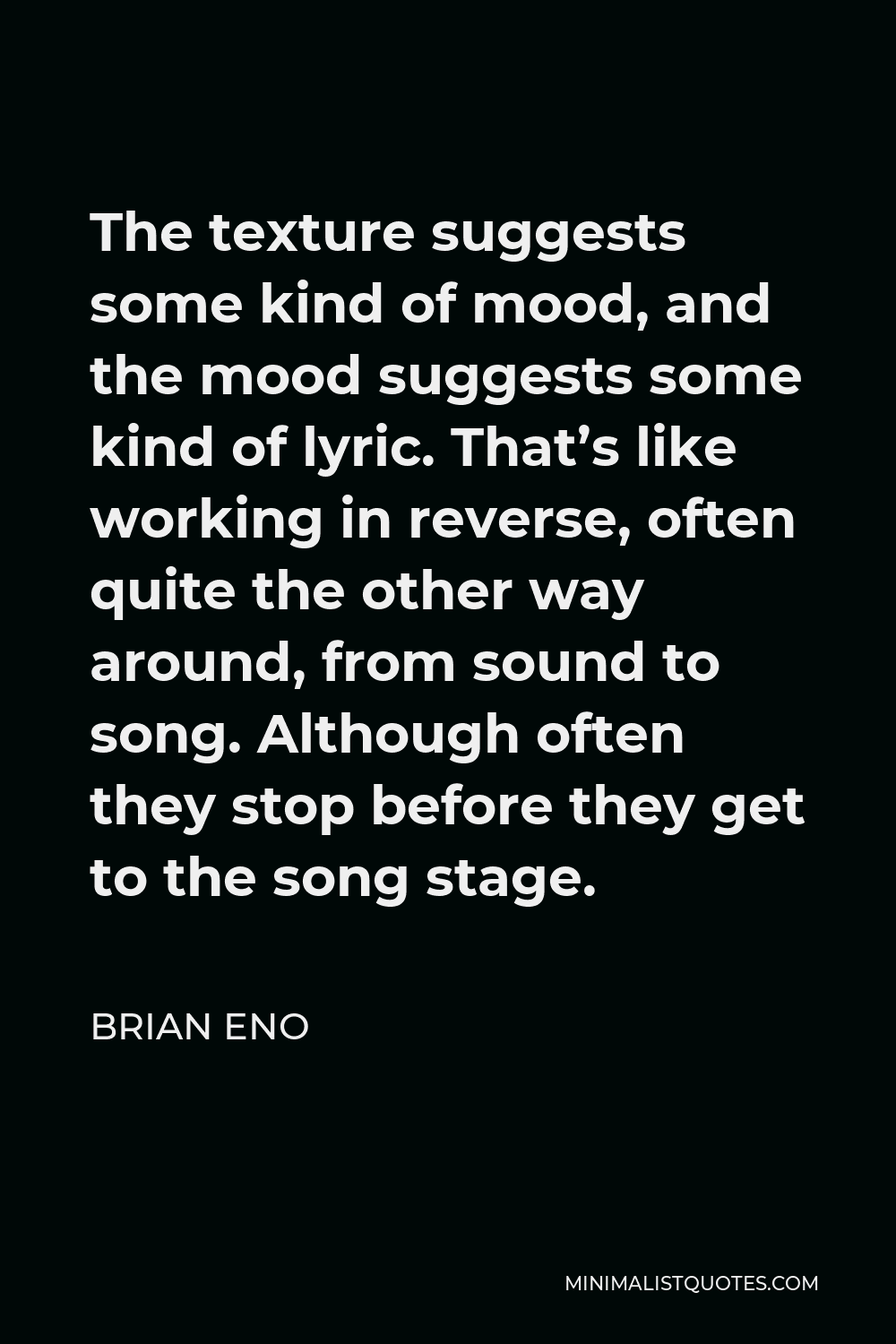
The texture suggests some kind of mood, and the mood suggests some kind of lyric. That’s like working in reverse, often quite the other way around, from sound to song. Although often they stop before they get to the song stage.
BRIAN ENO -





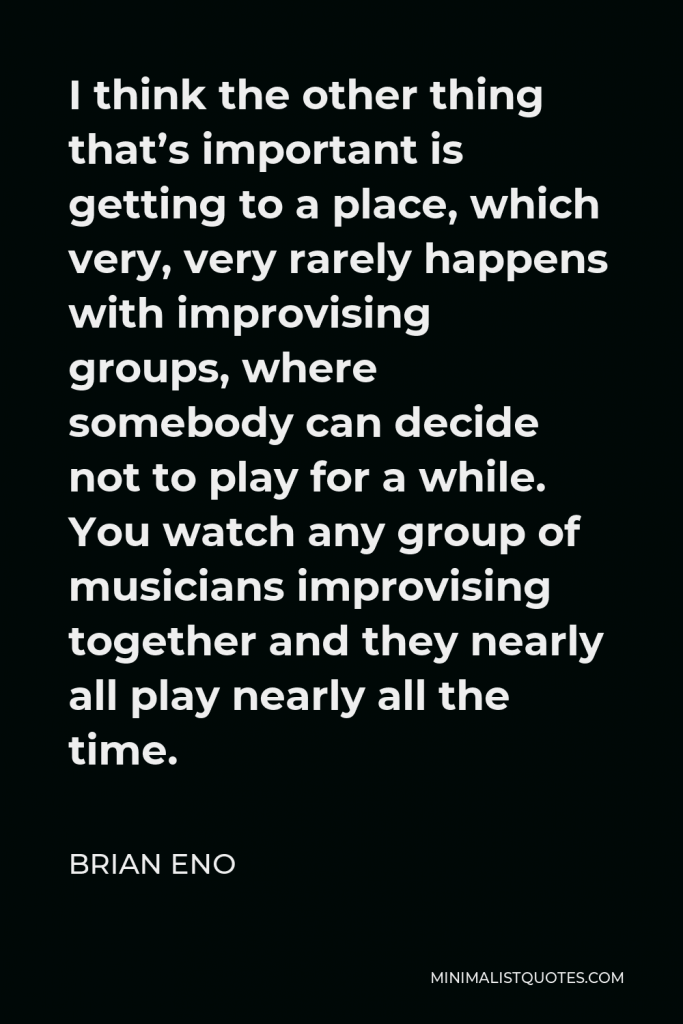

I think the other thing that’s important is getting to a place, which very, very rarely happens with improvising groups, where somebody can decide not to play for a while. You watch any group of musicians improvising together and they nearly all play nearly all the time.
BRIAN ENO -





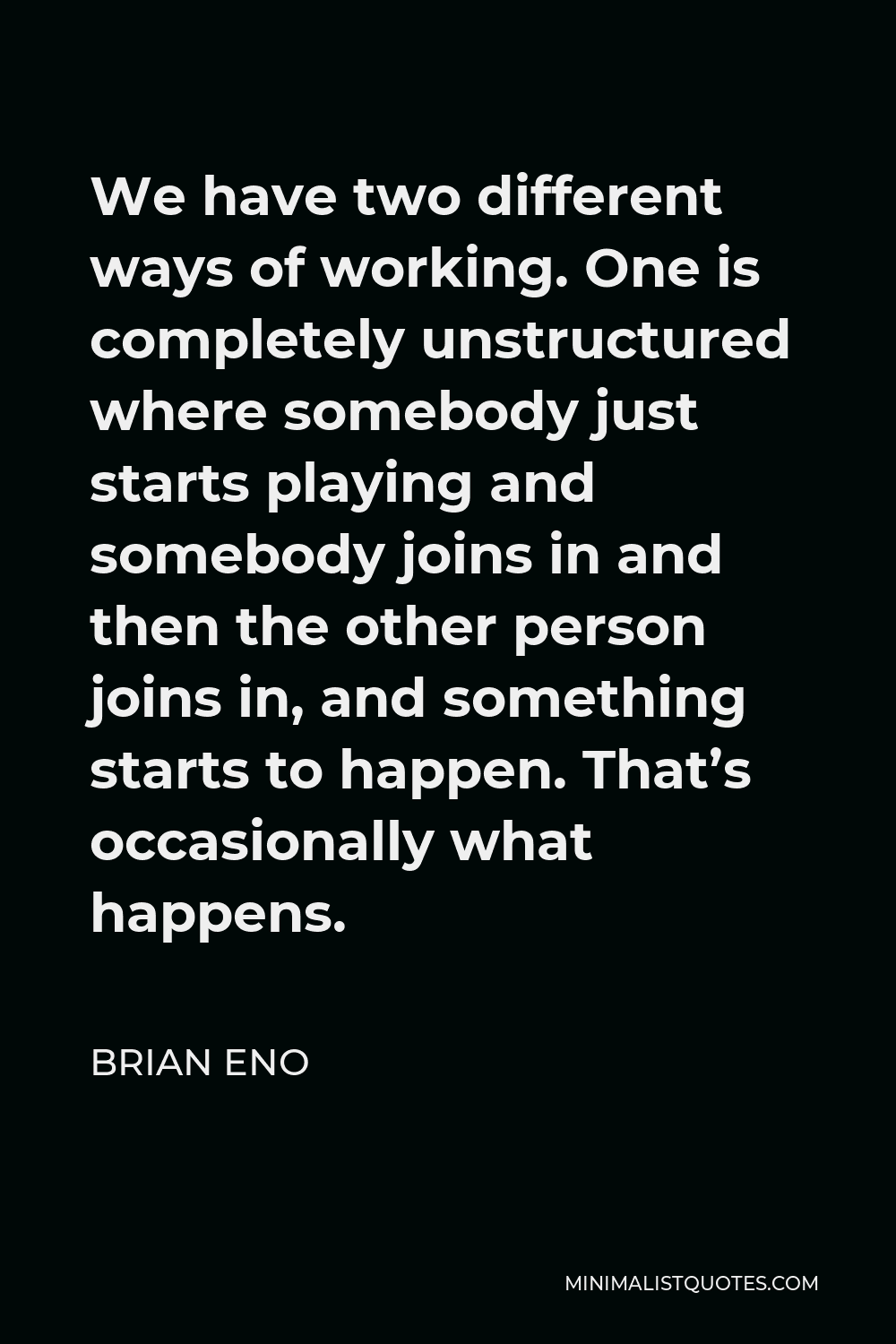
We have two different ways of working. One is completely unstructured where somebody just starts playing and somebody joins in and then the other person joins in, and something starts to happen. That’s occasionally what happens.
BRIAN ENO -





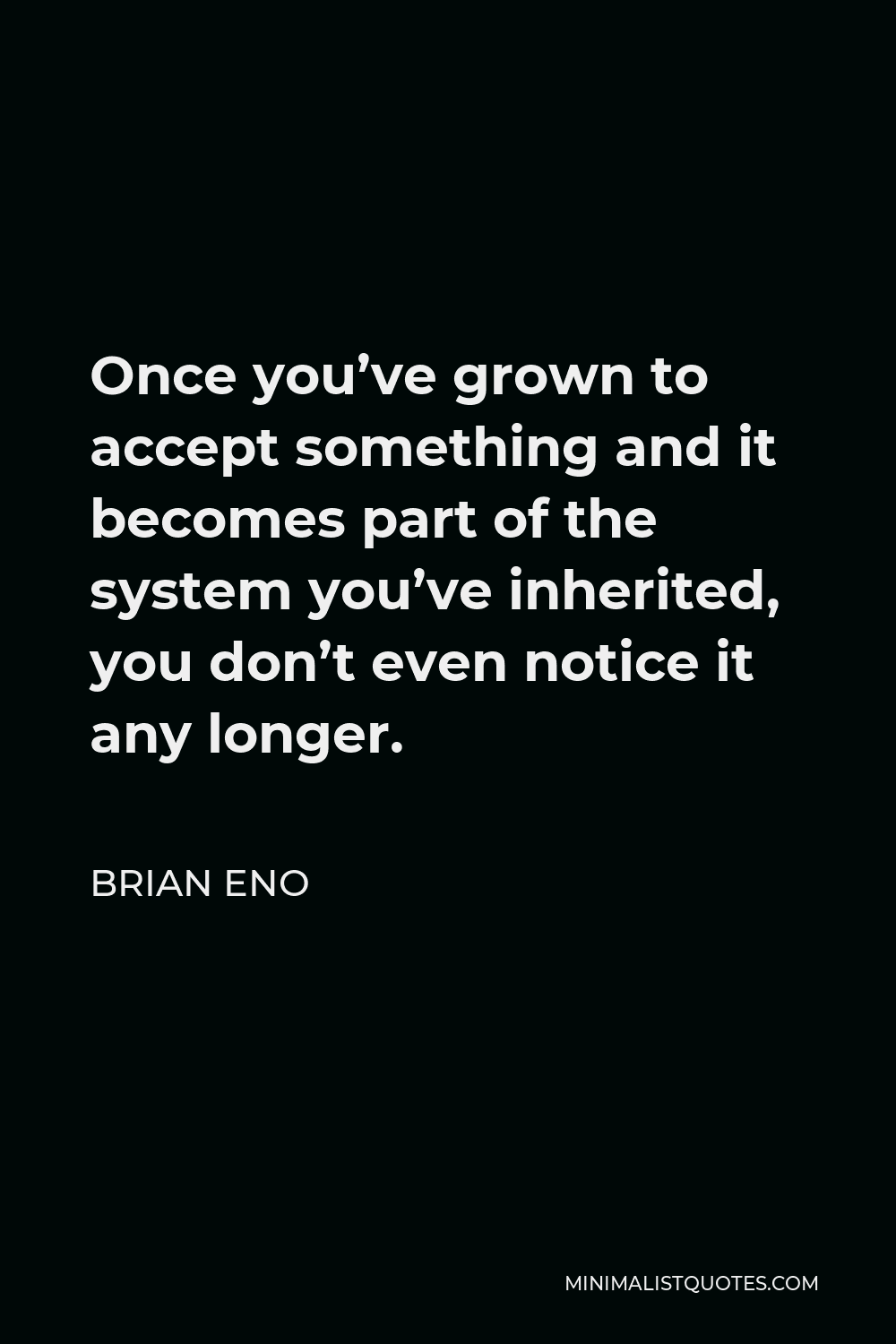
Once you’ve grown to accept something and it becomes part of the system you’ve inherited, you don’t even notice it any longer.
BRIAN ENO -





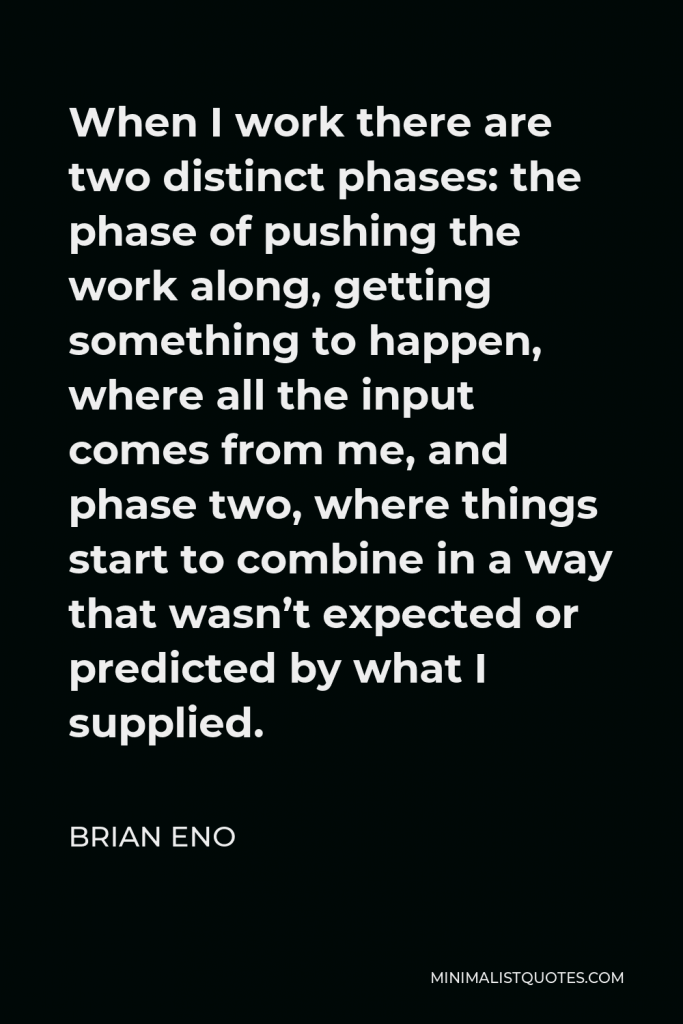

When I work there are two distinct phases: the phase of pushing the work along, getting something to happen, where all the input comes from me, and phase two, where things start to combine in a way that wasn’t expected or predicted by what I supplied.
BRIAN ENO -





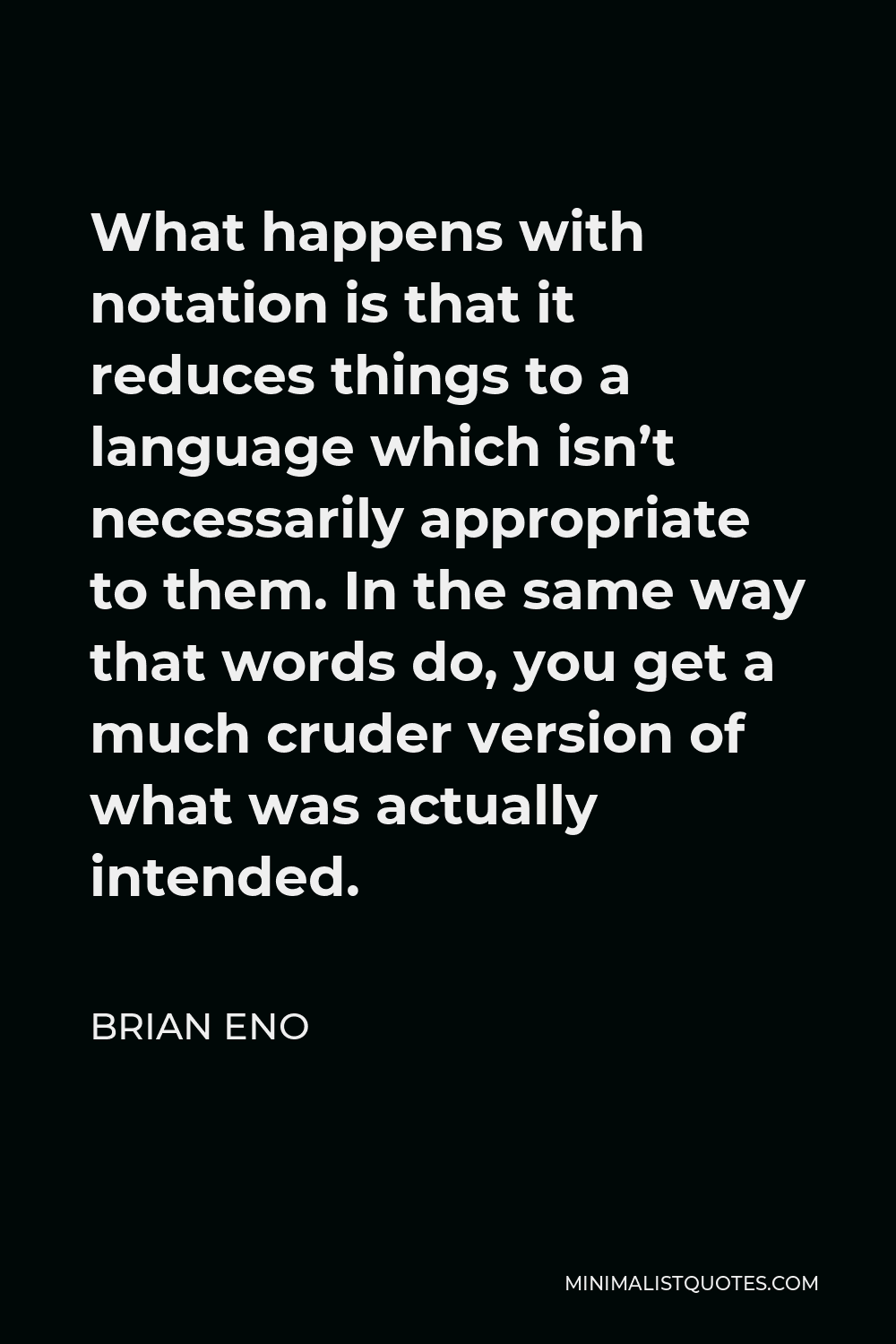
What happens with notation is that it reduces things to a language which isn’t necessarily appropriate to them. In the same way that words do, you get a much cruder version of what was actually intended.
BRIAN ENO
